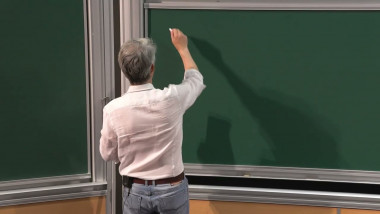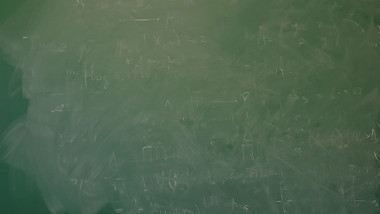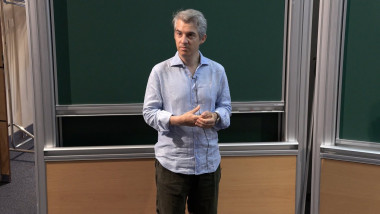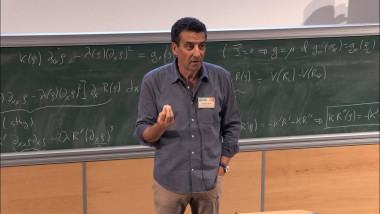Appears in collection : 2016 - T1 - WS5 - Secrecy and privacy theme
The benefits offered by ubiquitous communication networks are now mitigated by the relative ease with which malicious users can interfere or tamper with sensitive data. The past decade has thus witnessed a growing concern for the issues of privacy, confidentiality, and integrity of communications. In particular, users in a communication network now often wish to communicate without being detected by others. In this talk, we will present a framework to analyze the fundamental limits of covert communication over noisy channels based on the concepts of source and channel resolvability. Source and channel resolvability are canonical information-theoretic problems that exploit error-control codes as a means to shape the distribution of stochastic processes. This conceptual approach allows us to extend prior work by developing a complete characterization of the fundamental limits of covert communications for point-to-point channels. In particular, we show that, irrespective of the quality of the channels, it is possible to communicate O(n‾√)reliable and covert bits over n channel uses if the transmitter and the receiver share a key of size O(n‾√); this improves upon earlier results requiring a key of size O(n‾√logn) bits. Second, we show that, under certain conditions, it is possible to communicate O(n‾√) reliable and covert bits over nchannel uses without a secret key; this generalizes an earlier result established for binary symmetric channels. The main technical problem that we address is how to develop concentration inequalities for “low-weight” sequences; the crux of our approach is to define suitably modified typical sets that are amenable to concentration inequalities. We will also highlight how the conceptual approach allows us to analyze the fundamental limits of covert communication in multi-terminal problems.
















